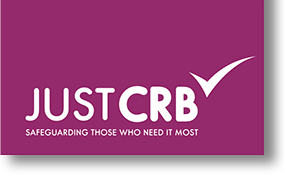TYPES OF CHECK
Individual Applicants
As an individual you can only apply for a Basic Disclosure.
Basic Disclosures
BASIC DISCLOSURE CHECK CHANGES
From January 2018, if you need a basic disclosure check for a job in England and Wales, you should apply to the Disclosure and Barring Service (DBS).
If you need a basic disclosure check for a job in Scotland, then you should apply to Disclosure Scotland.
If you want a check for personal reasons rather than work purposes, you should apply where you live – DBS if you live in England or Wales or Disclosure Scotland if you live in Scotland.
If you are applying to DBS you will be able to use their new online application route that will be available from January 2018 on www.gov.uk.
Alternatively, you can use a ‘Responsible Organisation’ (RO) – a third party registered with DBS – to submit checks on your behalf. A list of Responsible Organisations can be found at https://www.gov.uk/guidance/responsible-organisations.
For Companies wanting to carry out Basic checks on their employees please contact us for further advice.
Standard and Enhanced Checks
Available only through Companies or Organisations, one copy of the disclosure certificate is issued and is sent directly to the applicants home address. You will need to see this to record their disclosure number and issue date.
Organisations can only apply for a CRB/DBS check if the position is included in the list of offices, employments, work and occupations that are known as the exceptions to the Rehabilitation of Offenders Act 1974.
These positions are grouped into categories, depending on the type of work involved. Click here to see the list.
What process should I follow to check an applicant’s ID?
The person going through a DBS check (the applicant) must give their employer original documents (not copies) to prove their identity.
Route 1:
The applicant must produce:
- 1 document from Group 1, and;
- 2 further documents from either Group 1, or Group 2a or 2b;
- At least one of the documents must show the applicant’s current address.
Route 2:
If the applicant doesn’t have any of the documents in Group 1, then they must be able to show:
- 1 document from Group 2a;
- 2 further documents from either Group 2a or 2b;
- At least one of the documents must show the applicant’s current address. The organisation conducting their ID check must then also use an appropriate external ID validation service to check the application.
Route 3:
Route 3 can only be used if it’s impossible to process the application through Routes 1 or 2. For Route 3, the applicant must be able to show:
- a birth certificate issued after the time of birth (UK and Channel Islands);
- 1 document from Group 2a;
- 3 further documents from Group 2a or 2b;
- At least one of the documents must show the applicant’s current address. If the applicant can’t provide these documents they may need to be fingerprinted.
What I.D. is Required?
Click here to see list of valid id documents
Standard DBS Checks
Your application forms will be posted to you for you to distribute to your employees, guidance notes together with the list of acceptable proof of identity documents will be emailed to you. You will need to verify your employees identity from their original proof of identity documents before returning the applications to us for processing.
If you wish to use the online DBS application system we will email you applicant login details, applications will be submitted electronically to the DBS and the results emailed to you.
Enhanced Checks
Your application forms will be posted to you for you to distribute to your employees, guidance notes together with the list of acceptable proof of identity documents will be emailed to you. You will need to verify your employees identity from their original proof of identity documents before returning the applications to us for processing.
If you wish to use the online DBS application system we will email you applicant login details, applications will be submitted electronically to the DBS and the results emailed to you.
Volunteer Checks
Your application forms will be posted to you for you to distribute to your Volunteers, guidance notes together with the list of acceptable proof of identity documents will be emailed to you. You will need to verify your employees identity from their original proof of identity documents before returning the applications to us for processing.
Definition of a Volunteer
The Police Act 1997 (Criminal Records) Regulations 2002 defines a volunteer as:
Volunteer means a person engaged in an activity which involves spending time, unpaid (except for travel and other approved out-of-pocket expenses), doing something which aims to benefit some third party other than or in addition to a close relative.
*Volunteers just pay a small admin fee.
What information will the applicants need to provide?
Applicants need to provide: Full Names, Date of Birth, Town of Birth, NI Number, Driving Licence number (if applicable), Passport Number (if applicable) and a 5 year address history confirming months and years moved in and out of each address.
If applicants do not have a driving licence or passport, alternative id needs to be submitted: Bank Statement, Utility Bill, Marriage Certificate, Council Tax Statement, Credit Card Statement are just a few examples of acceptable id.
PLEASE NOTE: we do not require you to send original documentation.
